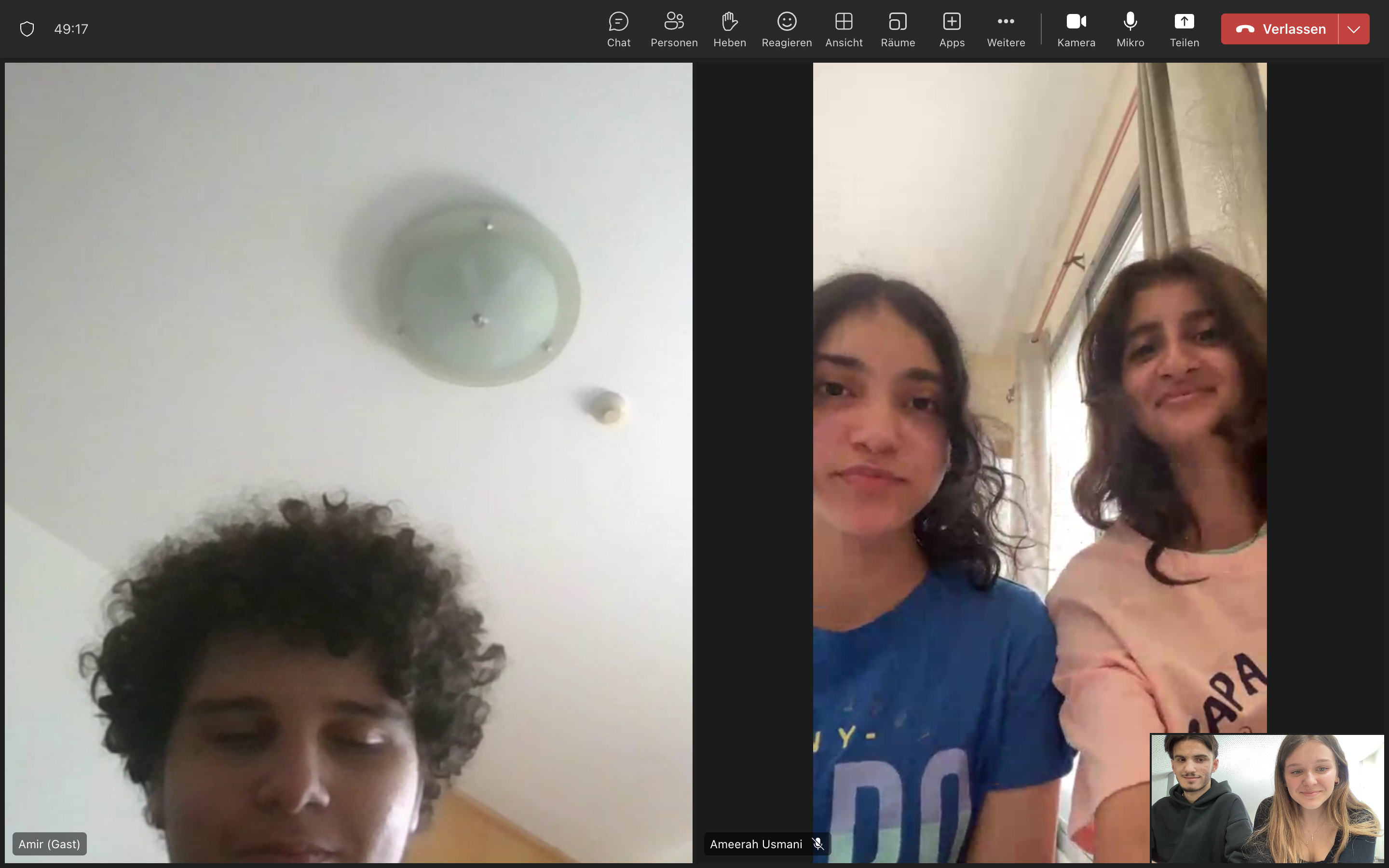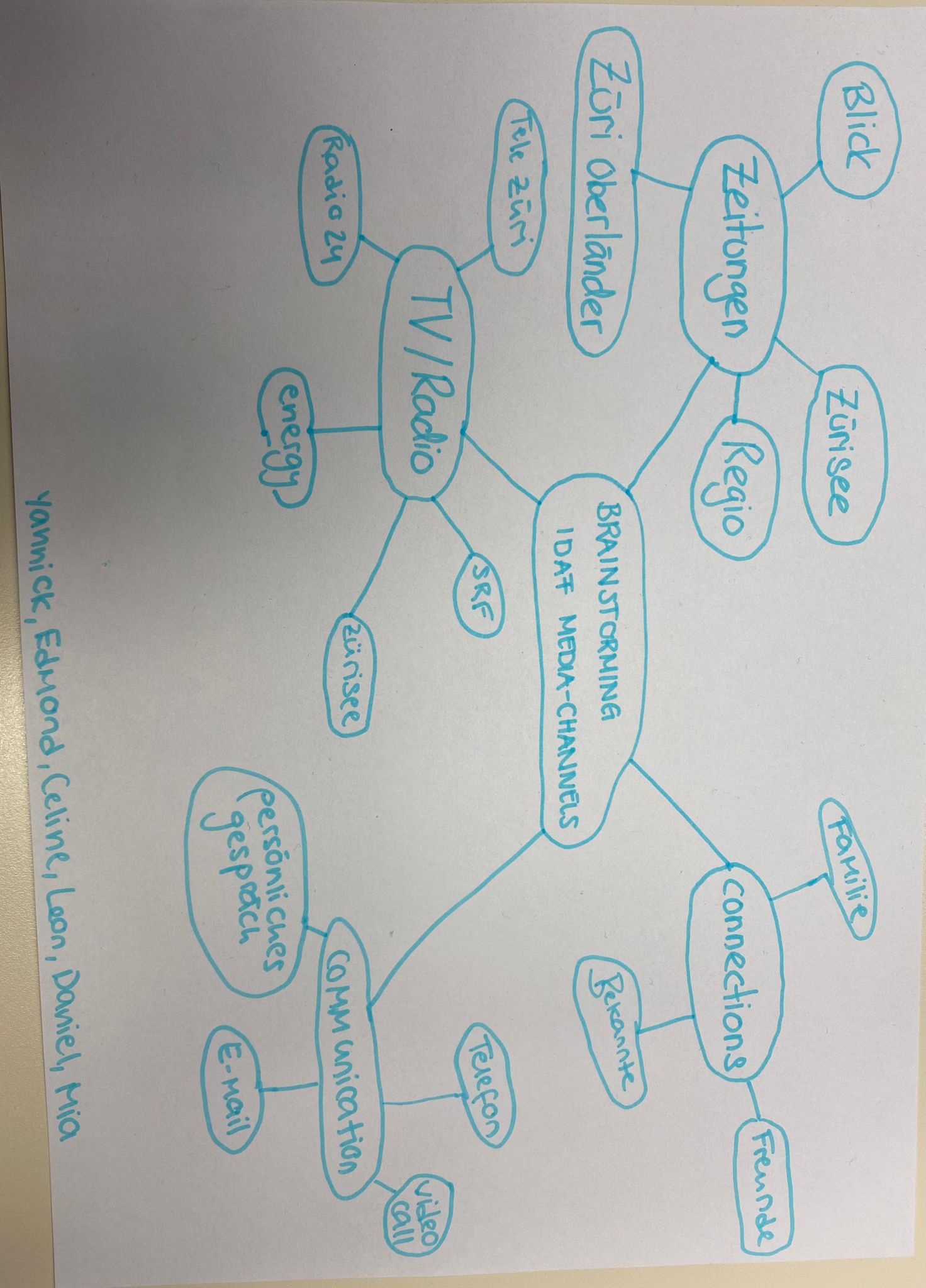On Monday afternoon were we able to get to know the students from Dubai.
Here are some of the things we talked about:
Students:
- Amir, 13 years old, likes basketball
- Ameerah, 14 years old, likes painting
- Se, 14 years old, likes drawing
Expectations:
- Amir is Egyptian and loves corals a lot. So he feels that he has an emotional connection to the project. His goal is to raise awareness.
- Se knew a lot of facts about the corals. She also wants to raise awareness.
- Ameerah wants to raise awareness and have an impact on the environment.
How to reach a larger audience:
- Amir wants to get an interview with a NYU professor and eventually publish it in the NYU newsletter of Dubai
- The other two girls want to start a social media account and post coral reef content.

Zusammen mit dem Team von Green Roofs (Celine, Daniel, Leon) haben wir ein Brainstorming durchgeführt. Wir haben mögliche Medien Kanäle gesucht, welche wir anfragen können, ob sie einen Kurzbericht über unser Projekt veröffentlichen.

The media that my coral reefs team will use are the following:
- social media: instagram
- Image-based media: visual content such as photographs, graphics, and illustrations
We have to choose the media type that best aligns with our project. We also have to consider the preferences of our target audience to ensure that our project resonates with them.
Status:
We got in contact with Sivani Kerala, a student from India and asked if she knew someone she can interview regarding our project. She is currently looking for someone and collecting some questions. We have trouble facetiming her because of our different schedules.
We also contacted the diver from Indonesia. We tried calling him but had problems with the internet connection. As to why we then texted him the questions and are hoping for a response.
Next Steps:
- Get in contact with our Dubai collaborations
- Write to our diver to get some answers
- Contact Sivani to see if she made some process
This post was published by Edmond, Yannick and Mia together.
We want to spread awareness and give tips on how we can protect the coral reefs.
Our goal is to make sure more people are aware of it and will also spread the word to others.
#coralreef #passion #live #breathe #nature #savecorals #wearestrong

What is our vision and imagination for our project regarding the protection of coral reefs?
We want to spread awareness and give tips on how we can protect the coral reefs.
The world's coral reefs are suffering from the devastating impacts of pollution, climate change, tourism, overfishing and other threats. Approximately 500 million people worldwide depend on reefs for food. Coral reefs cover just 0.2% of the world's seafloor but are home to a quarter of all marine life. Two thirds of the Great Barrier Reef is already bleached.
We will talk about various ways to protect the coral reefs in our project and hopefully be able to publish that article. We will also write about the way we endanger corals and how it affects us. Our goal is to make sure more people are aware of it and will also spread the word to others. In order to make a difference we have to start somewhere and hope that it will reach a big amount of people.
Yannick, Edi and Mia
Coral reefs are important ecosystems that support a diversity of marine life, but they are facing significant threats, such as:
- Climate change: Rising ocean temperatures cause coral bleaching and death.
- Ocean acidification: CO2 emissions lower the pH of seawater, making it more acidic and hostile to coral growth.
- Overfishing: Removing predatory fish can cause a shift in the balance of reef ecosystems and harm coral.
- Pollution: Runoff from agriculture and sewage can increase nutrients in the water and promote the growth of harmful algae that can smother coral.
- Destruction from human activity: Destructive fishing practices (e.g. dynamite fishing), anchors from boats, and coastal development can physically damage coral reefs.
To protect coral reefs, the following actions can be taken:
- Reduce carbon emissions to combat climate change.
- Implement marine protected areas and fishing regulations.
- Reduce and treat coastal pollution.
- Promote sustainable tourism practices.
- Raise public awareness about the value and vulnerability of coral reefs.